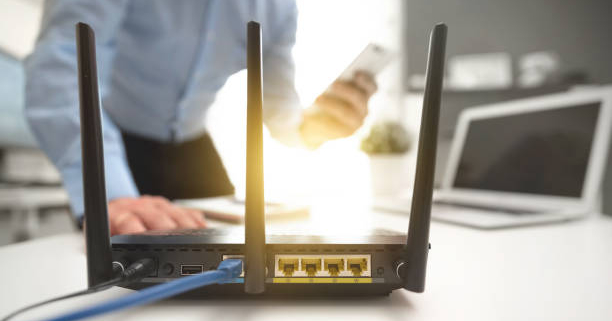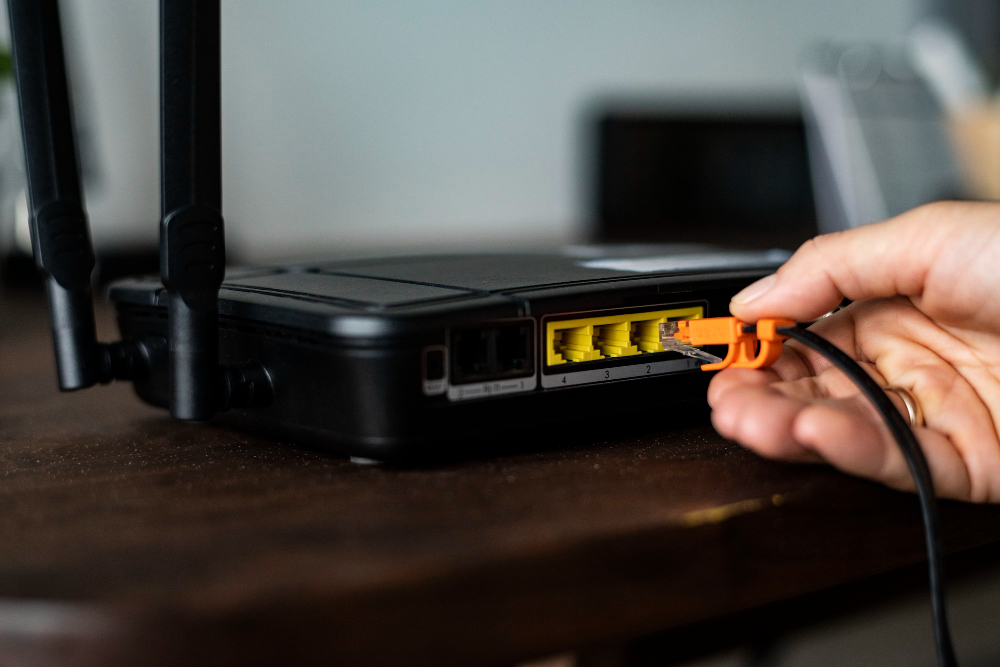Modem vs. Router Understanding Their Differences and Functions
Many people get confused about modem vs router, but knowing the difference helps you get better internet at home. A modem connects you to the internet, while a router spreads the connection. Over 90% of homes use both to stay online smoothly.
Many people mix up modems and routers, but they are not the same. A modem connects your home to the internet from your service provider. A router then shares that connection with your devices through WiFi or cables, so you can browse, stream, or work online without interruptions.
At IPRO, we’re explaining the difference in this article to help you understand how they work. Our goal is to make internet technology simple, so you can choose the right setup for your needs.
Modem vs Router: What’s the Difference?
If you want to go online, you need the right devices. Many people ask about modem vs router because they seem similar, but they do different jobs. Let’s break it down in a way that’s easy to understand.
What is a Modem?
A modem is a small box that brings the internet into your home. It takes the signal from your internet provider and changes it into something your computer, phone, or tablet can understand. Without a modem, you can’t connect to the internet.
How Does a Modem Work?
Think of a modem like a translator. Your internet provider sends data in a special language. The modem translates it so your devices can use it.
Here’s how it works:
- The modem receives internet signals from your service provider.
- It translates these signals into data your devices can understand.
- It sends this data to your computer, phone, or router.
Types of Modems
Not all modems are the same. Different types include:
- DSL Modems – Use phone lines for the internet.
- Cable Modems – Use TV cables for faster speeds.
- Fiber Modems – Use fiber-optic cables for the fastest internet.
Pros of a Modem
- Let your home connect to the internet.
- Works with different internet providers.
- Helps control internet speed based on your plan.
Cons of a Modem
- Only connects one device to the internet.
- Does not protect your network from hackers.
- Needs a router to share the internet with multiple devices.
What is a Router?
A router is another small box that connects to your modem. It shares the internet with all your devices, so they can go online at the same time. If you want WiFi at home, you need a router.
How Does a Router Work?
Think of a router like a traffic director. It makes sure internet data goes to the right device. For instance, if you’re watching Netflix on your TV and someone else is on YouTube, the router sends the right internet signal to each screen.
Here’s how it works:
- The router takes the internet from the modem.
- It sends the signal to different devices through WiFi or cables.
- It manages internet traffic, so everything runs smoothly.
Types of Routers
There are different types of routers, such as:
- Wireless Routers – Send internet to devices through WiFi.
- Wired Routers – Use cables for a more stable connection.
- Mesh Routers – Cover large homes with strong WiFi signals.
Pros of a Router
- Allows multiple devices to connect at once.
- Provides WiFi for wireless internet.
- Adds security to protect your network.
Cons of a Router
- Need a modem to connect to the internet.
- Can be expensive depending on features.
- Requires setup and occasional updates.
Do You Need Both?
Most homes need both a modem and a router. The modem brings the internet in, and the router shares it with multiple devices.
Some devices combine both into one, called a wifi modem vs router combo. This is easier to set up but may not be as fast or secure as having separate devices.
Above all, understanding how these devices work helps you make the best choice for your internet setup.
Modem vs Router: Key Differences
| Feature | Modem | Router |
| Internet Connectivity | Connects to the internet through your ISP | Distributes the internet connection to multiple devices |
| Security | No built-in security features | Includes firewalls, encryption, and parental controls |
| Coverage Area | Connects only one device | Creates a WiFi network covering 500-1,000 sq. ft. |
| Connection Type | Uses wired connection (DSL, cable, fiber) | Can be wired or wireless (WiFi) |
| IP Address | Uses a public IP address (visible online) | Assigns private IP addresses for security |
| Number of Ports | Has two ports (ISP & one device) | Has multiple Ethernet & USB ports for wired connections |
| Cost | $50 – $150, depending on speed | $80 – $300, based on features & coverage |
| Setup | Simple plug-and-play setup | Requires additional configuration for security |
| OSI Layer | Works on the data link layer (translating ISP signals) | Operates on the network layer (manages data traffic) |
| Do You Need Both? | Yes, for internet access | Yes, for WiFi & multiple devices |
Similarities Between a Modem and a Router
| Feature | Both Modem and Router |
| Essential for Internet | A modem connects to the ISP, while a router shares the connection. |
| Work Together | Most homes and offices require both devices for seamless access. |
| Transmit Data | Both transfer data using packets for browsing, streaming, and emailing. |
For extra security, consider email security in Dallas to protect your network. With the right setup, you can enjoy fast, secure, and reliable internet!
How to Choose the Right Modem and Router for Your Internet
Choosing the best modem and router can be confusing, especially with so many options available. Many people ask, what is a modem vs router, and which one do they need? The right choice depends on factors like speed, compatibility, and internet provider requirements.
1. Check Compatibility with Your Internet Provider
Not all modems work with every internet provider. Before buying, check which models your ISP (Internet Service Provider) supports. Some providers even have a list of approved devices.
For instance, if you use fiber internet, you may need a special modem. If you choose the wrong modem, your internet won’t work properly.
2. Consider Your Internet Speed Needs
- A modem should support the highest internet speed offered by your provider.
- A router should match or exceed that speed to avoid slow connections.
- If you have gigabit internet, choose a modem and router that can handle speeds over 1,000 Mbps.
Above all, getting the right speed ensures smooth streaming, gaming, and video calls.
3. Choose Between a Separate Modem and Router or a Combo
A wifi modem vs router combo includes both in one device, making setup easier. However, separate devices offer better performance and flexibility.
- Combo devices: Easier to install, but may not be as fast.
- Separate devices: More powerful, better security, and easier to upgrade.
If you want faster speeds and better coverage, a separate modem and router is the best option.
4. Consider the Size of Your Home
- A router with a strong WiFi signal is important for larger homes.
- If you have a multi-story house, consider a mesh router for better coverage.
- If you use wired connections, choose a router with multiple Ethernet ports.
For instance, if you work from home, choosing a high-quality router vs modem setup can prevent slow speeds and dropped connections.
5. Look for Security Features
- A modem does not provide security.
- A router with a built-in firewall and encryption protects your data.
- Some routers offer parental controls and guest networks for added safety.
If security is important for your business, consider IT outsourcing in Dallas for professional network management.
6. Choose a Future-Proof Device
Technology changes fast, so buying a modem and router that supports newer standards ensures longer-lasting performance.
- Look for DOCSIS 3.1 modems (for cable internet) for the best speed.
- Choose a router that supports WiFi 6 for stronger and faster wireless connections.
Key Takeaway
Understanding modem vs router is important for setting up a strong internet connection. A modem connects your home to the internet, while a router allows multiple devices to connect through WiFi or cables. If you only have a modem, you can connect only one device at a time. Also, a router ensures better coverage, security, and faster speeds. In other words, having both improves your internet experience. If your computer is outdated, check out this guide on how to update Windows 7 to Windows 10 for a smoother online experience.
When choosing a modem and router, consider speed, compatibility, and security features to match your internet needs. For instance, ensure your modem works with your internet provider and your router supports the latest WiFi technology. Also, upgrading your devices when needed improves performance. If you need expert advice on setting up your network, contact us for professional support and guidance!
FAQs
What is the main difference between a modem and a router?
A modem connects your home to the internet through your Internet Service Provider (ISP). It brings the internet signal into your home. A router takes that signal and distributes it to multiple devices using WiFi or cables. In other words, a modem gets the internet, and a router shares it.
Do I need both a modem and a router?
Yes, most homes need both a modem and a router. A modem alone can only connect one device to the internet. Also, a router allows multiple devices to connect and provides WiFi for wireless access. Therefore, having both ensures a better, faster, and more secure internet experience.
Can I use a router without a modem?
No, a router alone cannot access the internet. It only helps share an existing internet connection. After that, the modem must be present to receive the internet signal from the provider and send it to the router. For instance, without a modem, the router has nothing to share.
What is a modem-router combo, and should I get one?
A modem-router combo combines both devices into one unit. It is easier to set up and saves space. However, separate devices often provide better speed, performance, and security. Above all, if you want more control over your network, getting a separate modem and router is a better choice.
How do I know which modem and router to buy?
When choosing a modem, make sure it is compatible with your ISP and supports the internet speed you pay for. Also, for routers, look for WiFi 6 technology for the best wireless performance. In addition, consider the size of your home—larger homes may need a mesh router system for better coverage.







